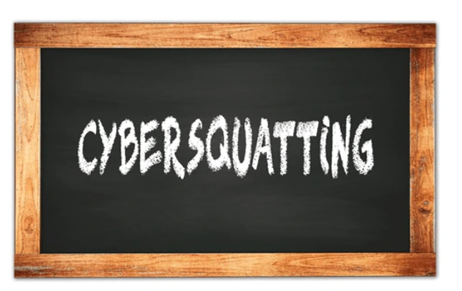Artificial intelligence has a wide range of effects, including on intellectual property law. At best…
Character Merchandising, Through Trademark Licensing
Character merchandising promotes a character, fictional or real, through portraying its essential personality features, such as its appearance, sound, image, or name by way of various goods or services. Merchandising is regarded as lawful when it is exploited either by the owner himself or through the operation of law or by way of an assignment or licensing. In this article, we will shed light upon character merchandising and its lawful exploitation through an authorized third party by way of trademark licensing.
Character Merchandising is the secondary exploitation or adaptation of a character, real or fictional, through goods or services.[I] It is a marketing tool, which targets the customers by making merchandisable products by way of adopting a character’s image, voice, features, etc., through different modes of depictions and presentations. For example, Walt Disney licensed its characters to be merchandised through different products such as tee shirts, stationary, utensils, etc.[ii]
A trademark is an intellectual property capable of being represented graphically[iii], which includes a brand, name, device, word, heading, label, ticket, letter, signature, numeral, shape of goods, packaging or combination of colors or any combination thereof[iv], capable of distinguishing between the goods or services of one enterprise from that of the other[v]. Trademarks can be protected by way of registration at both national and international levels. A trademark once registered has the exclusive right to be protected as an intellectual property right and any sort of deception amounts to infringement. A graphical character of a movie or cartoon or reel or real-world can be protected as trademarks apart from being protected as fictional characters under the copyrights regime. The owner of a character can register their graphical character or any feature of such characteristics such as a sound, with the trademarks office and then can promote its character, either by way of an assignment agreement or a licensing agreement to commercially pierce in the market by way of merchandised goods or services. This commercial exploitation or adaptation of the registered character, by way of merchandising through such licensing or assignments, grants the authorized third parties the authority to use the characters in merchandised products or services.
However, many proprietors of a character mark, who do not prefer to go hands down in commercially exploiting their characters themselves or doesn’t want to lose their right in such characters, opt to go for character merchandising through trademark licensing agreement, with merchandising clause and specified terms and conditions, authorizing the third party to indulge in using their characters or one or several traits of the characters upon their products and thus promoting the character.[vi]
Trademark licensing is the authorization of a third party as a registered user, by the registered proprietor/owner of the trademark through an agreement comprising of all the mutually agreed terms and conditions, including the time period of such subsistence of the trademark license with the licensee/registered user. A registered user is the licensee of the trademark, authorized to deal with the trademark exclusively or non-exclusively as decided upon in the trademark license agreement. Even though the term ‘Trademark Licensing’ is not defined under the Indian Trademarks Act[vii], Sections 48 and 49 of the Act deals with ‘Registered Users’ other than the Registered Proprietor. According to section 48 of the act[viii], any person(s) except the registered proprietor/owner of a trademark may be registered as a registered user for any or all the goods or services in relation to the registered trademark. Furthermore, Section 49 of the trademarks act stipulates the terms in case a person is proposed to be registered as an authorized/registered user by the proprietor of the trademark. Sections 102 and 103 of the trademarks act, further clarifies that falsely using any trademark or applying it to goods and services, without the consent of the owner/proprietor invites punishment of imprisonment which may extend to three years, and a fine which may extend to 2 lakhs rupees[ix].
The owner/registered proprietor can get involved with different parties involved in different activities through separate licensing agreements. For instance, an agreement to merchandise the character of Harry Potter or its name on utensils and the other on garments will be processed with two separate licensees.[x]
Such trademark licensing agreements can either be exclusive or non-exclusive. An exclusive license is restrictive in nature wherein no other third party can merchandise the proprietor’s character except the authorized licensee. On the other hand, in the case of a non-exclusive license, even though a licensee has the right to exhaust its rights, however, it does not restrict the proprietor/licensor from indulging in different trademark merchandising agreements with other parties.[xi]
A Merchandising license of a character mark shall be in writing, duly authenticated agreement and should contain the exclusivity status explaining the degree of control by the proprietor over the permitted use offered to the licensee, definition of the subject matter of the agreement, description of the features relating to the character to be merchandised, Goods and services in which it is to be inculcated, territorial limitation and scope of the agreement, nature of work, a period of permitted use and confidentiality clause.[xii]
Conclusion: Trademarks can prove to be essentially beneficial in the case of promoting characters through merchandising. Fictional characters such as Doctor Strange, Mickey Mouse, Harry Potter, or famous real persons, when endorsed and merchandised into different products such as 3D key-rings, toys, and Prints on T-shirts, etc., can mutually benefit the licensor/owner and the licensee/registered proprietor. A Trademark licensing agreement for character merchandising thus should be executed consciously and effectively to cull out the best results.
Author: Vartika Prasad, student of 5th Year- B.A. LL.B. (Hons.), Amity Law School, Noida, an intern at Khurana & Khurana, Advocates and IP Attorneys. In case of any queries please contact/write back to us at aishani@khuranaandkhurana.com.



